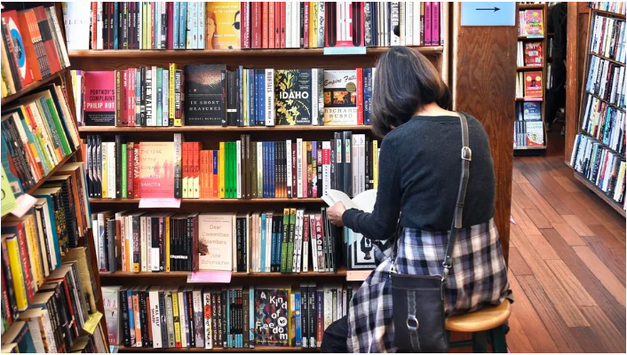

If you’re an entrepreneur planning for 2026, or still dreaming of launching your first business, choosing the right reads matters. The internet is flooded with business books promising fast success, passive income, and instant breakthroughs. Most of them recycle the same tired advice with little real-world depth. That’s why curating a true Entrepreneur’s Christmas List takes intention. The best books don’t just motivate you. They challenge you, prepare you for hard moments, and give you tools you can actually use. These seven titles stand out because they’re written by people who have built, failed, learned, and built again.
Many popular business books are written by people who’ve never truly sat in the founder’s seat. They talk in generic frameworks, oversimplified success stories, and motivational slogans that feel good but change nothing. Real entrepreneurship is messier than the headlines suggest. It includes cash-flow panic, difficult leadership decisions, broken partnerships, and constant uncertainty. The books that matter are the ones that don’t flinch at that reality. A strong Entrepreneur’s Christmas List should prepare you for pressure, not shield you from it. That’s what separates entertainment from education in business reading.
The Hard Thing About Hard Things by Ben Horowitz is one of the most brutally honest startup books ever written. It walks through moments founders rarely talk about, from layoffs to leadership self-doubt. Horowitz doesn’t offer fantasy solutions—he offers survival-level wisdom. Pair that with Right Kind of Wrong by Amy Edmondson, and you get a masterclass in learning from failure with intention. Edmondson shows that not all failure is equal, and only certain mistakes actually produce growth. Together, these two books teach resilience without romanticizing struggle. They belong on every serious Entrepreneur’s Christmas List.
Steven Bartlett’s The Diary of a CEO captures the mental, emotional, and strategic realities of modern entrepreneurship. Built from lessons gained through years of interviews and personal experience, the book delivers practical insights in highly readable form. It explores confidence, burnout, discipline, and long-term thinking without drifting into empty hype. The book’s structure makes it easy to apply lessons immediately rather than someday. It also reflects the generational shift happening in leadership and work culture right now. For entrepreneurs navigating visibility, pressure, and scale, this book earns its place on your Christmas list.
Mark McCormack’s What They Don’t Teach You at Harvard Business School remains essential decades after its release. The reason is simple: people problems still run businesses. McCormack focuses on negotiation, time management, and human dynamics that textbooks often miss. His writing cuts through corporate jargon with blunt clarity. Entrepreneurs appreciate this book because it feels like advice from someone who’s actually been in the room when deals fall apart. It’s practical without being preachy. If you're building in the real world, not a classroom, this one belongs on your shelf.
Sara Davies’ The Six-Minute Entrepreneur is built for people who don’t have endless time but still have real ambition. It speaks directly to founders who juggle families, jobs, finances, and uncertainty all at once. Davies shares how she scaled a global brand while managing ordinary life constraints. Her advice is grounded, fast-moving, and doable in small daily actions. This book removes the myth that success requires perfect conditions. For entrepreneurs building in chaos, it’s both practical and deeply relatable.
Chris Guillebeau’s Side Hustle is written for people who aren’t ready to quit their jobs—but are ready to start something real. It breaks entrepreneurship into manageable steps that reduce risk without killing momentum. The book emphasizes testing ideas fast, learning from small failures, and protecting financial stability. For many first-time founders, this path feels safer and smarter. It also reflects how modern entrepreneurship actually begins for most people. As a Christmas pick, it offers permission to start imperfectly—and start anyway.
Bo Burlingham’s Small Giants challenges the idea that growth must always mean scale. The book profiles businesses that chose purpose, community, and service over raw expansion. These companies focused on being great instead of being everywhere. For entrepreneurs tired of hustle-only narratives, this book is a reset. It reframes what winning can actually look like in business. As a final addition to your Entrepreneur’s Christmas List, it reminds you that meaning and profit don’t have to compete. Sometimes, the strongest growth happens by staying intentionally small.
𝗦𝗲𝗺𝗮𝘀𝗼𝗰𝗶𝗮𝗹 𝗶𝘀 𝘄𝗵𝗲𝗿𝗲 𝗿𝗲𝗮𝗹 𝗽𝗲𝗼𝗽𝗹𝗲 𝗰𝗼𝗻𝗻𝗲𝗰𝘁, 𝗴𝗿𝗼𝘄, 𝗮𝗻𝗱 𝗯𝗲𝗹𝗼𝗻𝗴. We’re more than just a social platform — from jobs and blogs to events and daily chats, we bring people and ideas together in one simple, meaningful space.
Comments